Are you coming to a stop and hearing a rumbling or grinding noise? Chances are, this horrible series of sounds are coming from your brakes. Should you be experiencing this issue and want to know what to do about it, we can help you. Let's check out what is causing this below!
If you begin to hear rumbling/unusual noises when braking, you should take your vehicle in for a brake inspection as soon as possible. These noises may be caused by one of the following:
- Sticking caliper
- Worn brake pads
Now that we know the potential causes of the rumbling sounds let's look at what they mean. You might also wonder how often you should change your brake fluid or if you shouldn't ignore other brake noises. To find out the answers to these questions and more, read ahead!
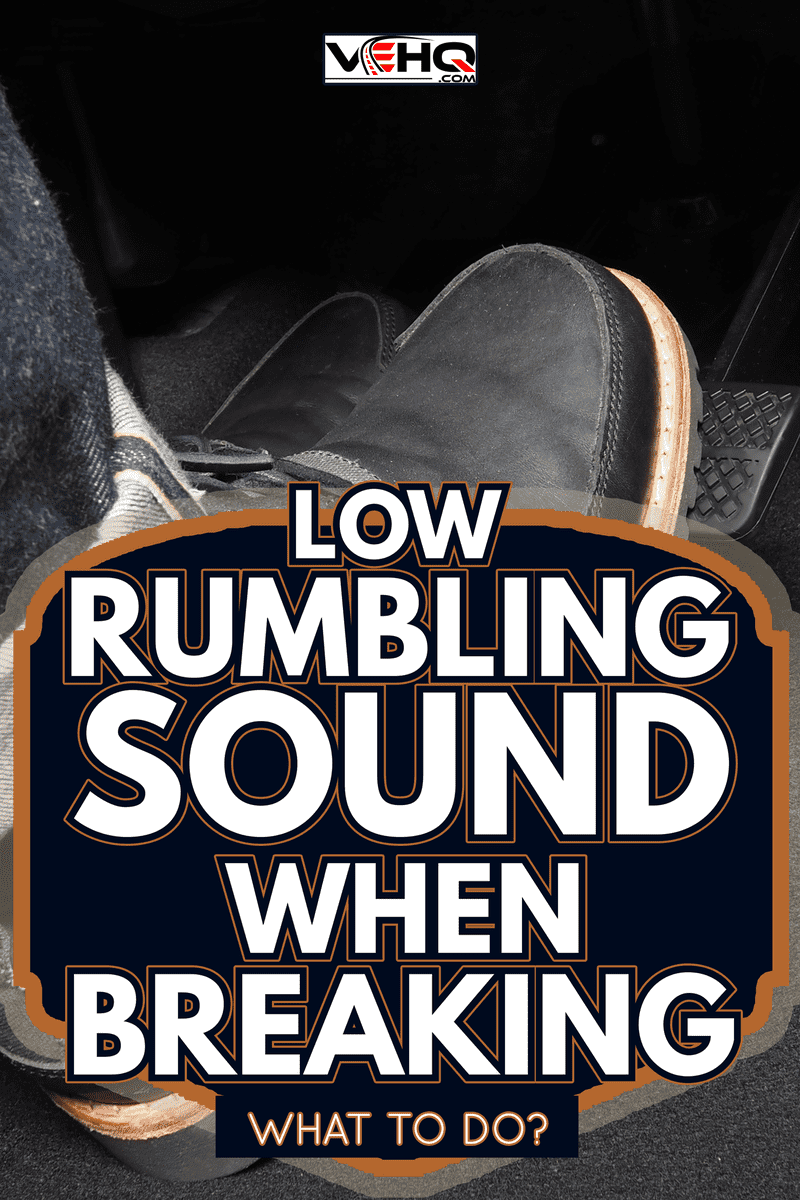
Why Do My Brakes Make A Rumbling Noise?
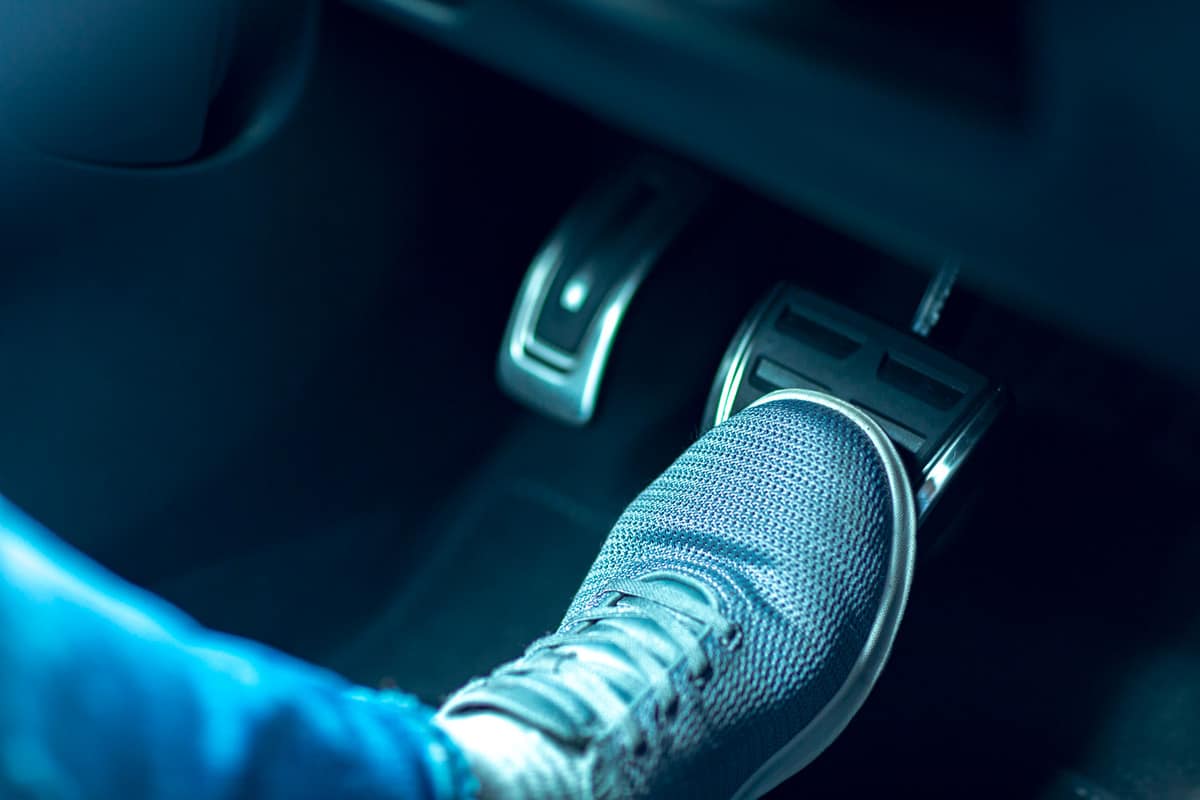
As soon as your brakes make these dreaded sounds, you should get them looked at as quickly as possible. Continuing to drive might mean brakes that are compromised which can put you and others at risk of injury.
You can also damage parts of your vehicle by not addressing these noises.
Sticking Calipers
A stuck caliper will press all the brake pads onto the brake rotors. This constant contact of the calipers to the pads will make it seem like the vehicle is constantly braking, even when you are accelerating.
This situation will not only cause a rumbling or grinding noise, but it will also cause premature wear of these two parts. Should this problem not be addressed, it will impact how your vehicle drives.
It can also lead to damage to the brake rotors.
Worn Brake Pads
Nothing lasts forever, and this is especially true with parts exposed to massive amounts of friction. Brake pads work to slow the wheels to a stop by pressing in and squeezing the rotors.
Doing so will stop the wheels from spinning, but it also generates heat.
This heat is minimized by the brake fluid pumped through the brake lines. But over time, these pads will still wear down. When they wear down too far, you'll hear a "metal on metal" sound every time you brake.
Braking on worn pads isn't safe as your vehicle has compromised brakes. Get your brakes checked out by a professional for safety and other concerns as soon as you begin to hear grinding or rumbling sounds.
How Long Can I Drive With Breaks That Are Grinding?
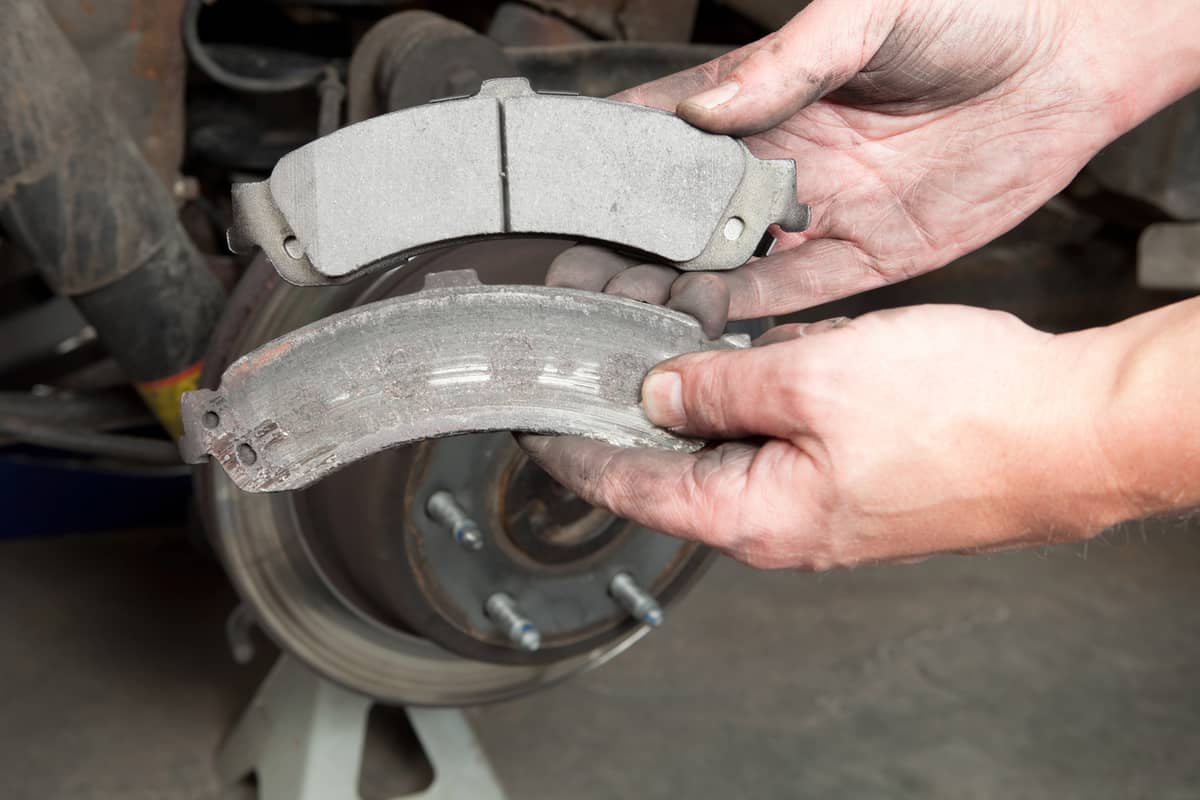
We mentioned earlier in this post that you shouldn't be driving on brakes grinding. When the brake pads are so worn that you hear this noise, they leave little to no life.
And when the pad is gone, it's harder to slow a vehicle down.
The short answer here is not very long at all. Preferably, as long as it takes you to get your vehicle in for brake inspection and service. While grinding noises do indicate that you are at the end of your brake pads' useful lives, you could have a bit of time left on them.
But leaving that to chance isn't worth the risk of damage to your vehicle or putting your safety at risk. You should be able to avoid these types of situations altogether if you follow the routine maintenance checklist in your vehicle's owner's manual.
Having your brakes and their components inspected at certain intervals should identify these problems before they happen.
How Do I Know If My Brake Fluid Is Low?
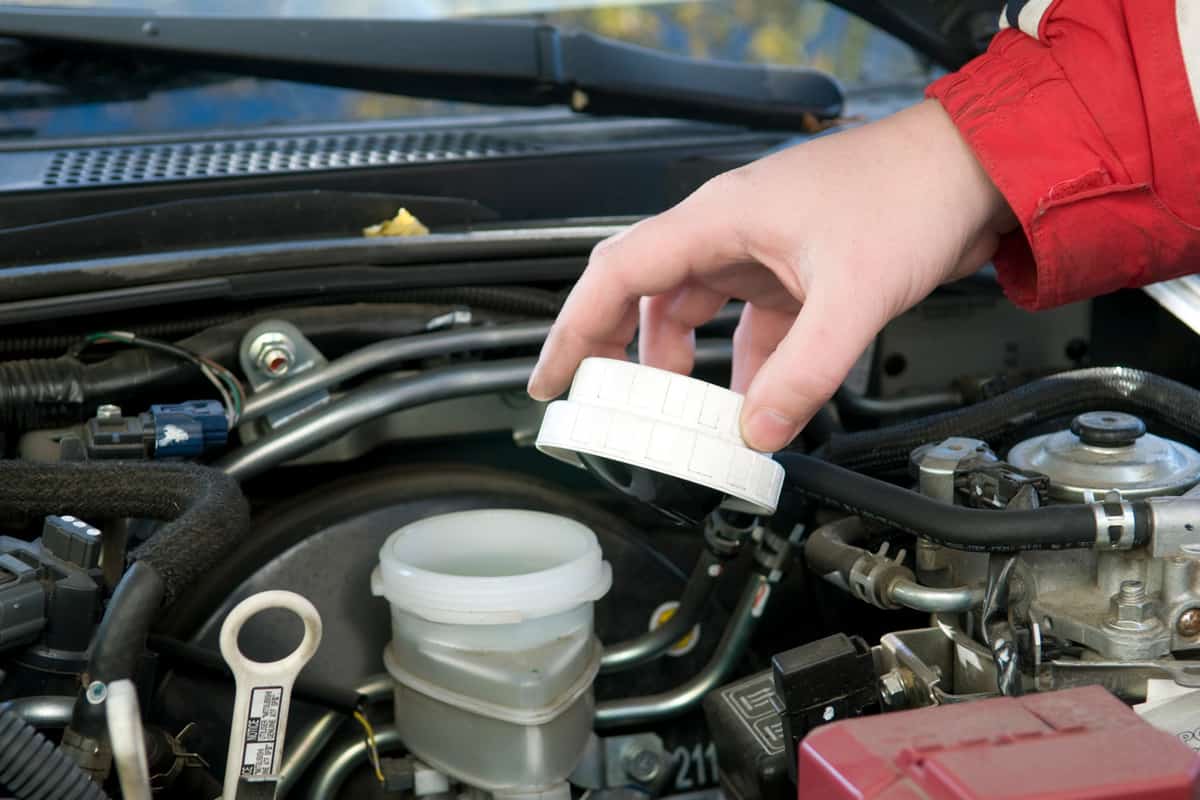
Brake fluid is pumped through brake lines, calipers, and brake pads. This reduces the wear on these vital parts from the heat generated by the friction created every time you apply the brakes.
The more worn the brake pads get, the more brake fluid is needed to achieve this. So over time, your vehicle can be expected to use up this fluid.
There are some warning signs that your brake fluid is running low. It's a great idea to keep these indicators in mind so that you'll know the answer to the problem it if ever occurs:
Stiff Brake Pedal
When your brake fluid runs too low, it can be challenging to press on the brake. This lack of liquid will make the pedal seem stiff and require more effort.
Clear Puddles Under Your Vehicle
If your brake line is leaking, you might find evidence in your driveway. Get your brake lines checked if you notice a clear fluid under your vehicle.
Note that this fluid might not always be clear and might have a yellowish tinge.
It's More Difficult To Brake
Running low on brake fluid can also mean that it will take longer for your vehicle to come to a stop. The lack of fluid running to the brake calipers and pads can delay stopping, a severe issue.
How Often Should You Change Brake Fluid?
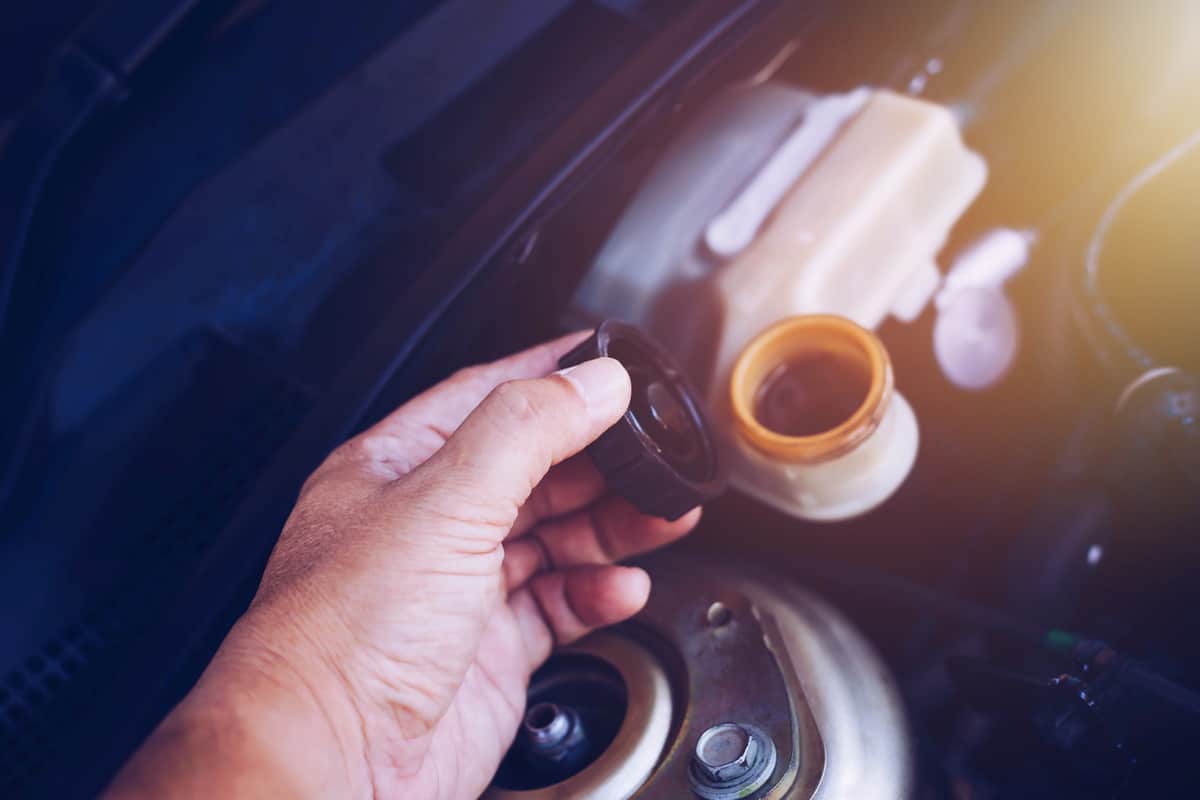
There is no one answer to this question. Each automaker has different intervals in which you should change brake fluid. Some, like Chevrolet, will dictate this change at a specific mileage interval.
In the case of this make of vehicle, that interval is every 45,000 miles.
Other automakers put a time interval on when you should change this vital fluid. Volkswagen, for example, should have its brake fluid changed every three years.
And some auto manufacturers will not give a definite interval on it, only saying to have it routinely inspected so it can be changed when needed.
A great rule is to have your brake fluid inspected every time your oil changes. This is pretty routine for many dealerships, but if you do this task on your own, we suggest checking the brake fluid level.
What Other Brake Noises Should I Not Ignore?
The rumbling and grinding noises we described earlier aren't the only noises you might hear from your brakes one day.
Different noises can indicate other problems, none of which should be ignored. If you hear any unusual sound from any part of your vehicle, it's generally a good idea to get it checked out.
You might hear a thumping noise when you brake. This is usually when the brake rotors have warped. But it can also be due to residue buildup from the brake pads.
Either way, you'll want to address this as soon as possible.
Severely worn brake pads might begin to make a squealing sound. As we pointed out earlier, worn pads will destroy your brake rotors!
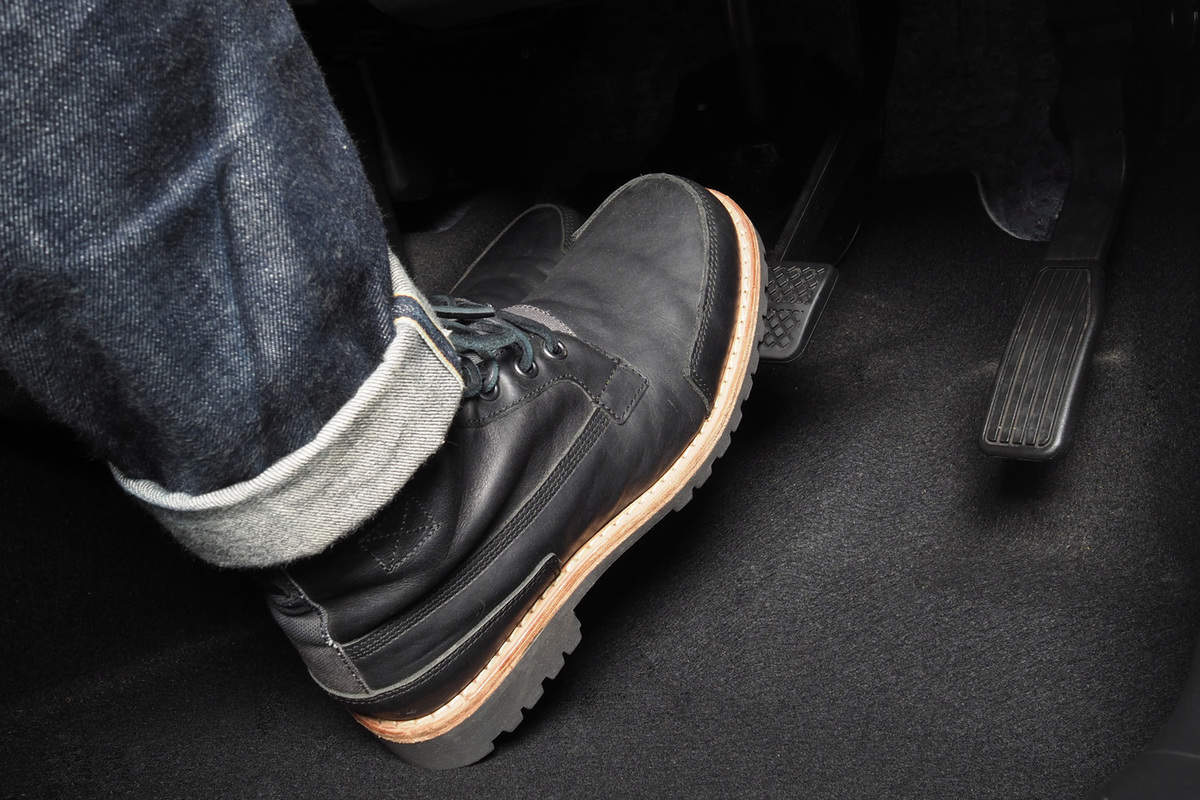
To Wrap It Up
Whenever you hear your brakes making rumbling or grinding noises, you should immediately get your brakes in for a professional inspection.
Failure to remedy this problem promptly will not only do damage to parts of your vehicle but will also put the safety of you and others in jeopardy.
Consult your owner's manual for how often you should change your brake fluid, and routinely check the fluid level. Drive safe!
Make it this far? If you found this post on brakes to be helpful, we suggest taking a look at the following automotive posts:
10 Types Of Vehicle Brakes And Braking Systems To Know
